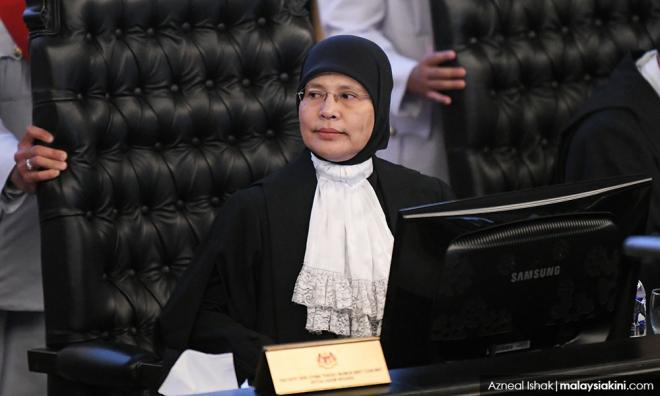
The judiciary would undertake several reforms to improve the efficiency of court procedures and enhancing access to justice for the people, Chief Justice Tengku Maimun Tuan Mat said.
For a start, she said an electronic bail system would be introduced to enable bailors to make the bail payment online, rather than physically going to a bank to procure the necessary bail bond.
She said the concept was particularly significant in Johor and Kedah where the courts operated on Sunday but the banks were closed.
“The launch of the programme would be in stages beginning with Kuala Lumpur, Shah Alam and Seremban and we hope to expand it to all the other states in due course,” she said at the opening of the Legal Year 2020 in Putrajaya today.
Tengku Maimun said e-Review system which enables case management to be undertaken by the court registrars and lawyers online, would also be expanded.
The top judge in the judiciary said the institution would also improve the efficiency of court processes through digitalisation by extending the e-Court procedures to 82 locations.
She said the judiciary also planned to achieve full digitalisation at the appellate courts by the middle of this year, citing an example of appellate sittings in Sabah and Sarawak which require the transportation of hard copies of cause papers to the relevant courts, which also require considerable manual labour and expense.
No tolerance for corruption
To improve the efficiency of appeal hearings at the Federal Court, Tengku Maimun said the judiciary is considering having applications for leave to appeal to the Federal Court, to be heard by only a single judge of the Federal Court.
“At present, at least three judges hear such applications and this takes up significant judicial time and resources,” she said.
Tengku Maimun said in a further effort to improve access to justice, the judiciary has also amended the Rules of Court 2012 to cater for a specific procedure on environmental cases to facilitate and encourage environmental suits by relaxing procedural obstructions.
The Chief Justice also said the courts were also working to substantially limit civil appeals in interlocutory cases to avoid delays in the full trial.
She said there were also a large number of family law cases at the High Court and the judiciary has decided to invoke a provision in the Law Reform (Marriage and Divorce) Act 1976 to allow the Sessions Court judges to hear non-contentious family law matters for the time being so that the High Court judges could focus on more contentious matters.
In her speech, Tengku Maimun said the judiciary does not tolerate corrupt practices and that the institution has implemented a policy to have its officers transferred once in every three years to ensure they do not get too comfortable and prone to temptation at their work station and so that they become well-rounded officers with varied experience.
- Bernama


No comments:
Post a Comment
Note: Only a member of this blog may post a comment.